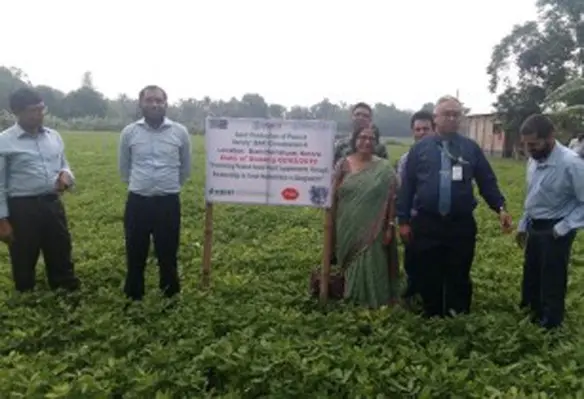Following successful testing in Bangladesh, the new groundnut variety BARI Chinabadam-12 (ICGV 07219), developed by the International Crops Research Institute for the Semi-Arid Tropics (ICRISAT) and the Bangladesh Agricultural Research Institute (BARI), has been approved for commercial cultivation in Bangladesh
The new improved groundnut variety is more resistant to diseases and has been designed to meet the needs of food processing industries. It is also expected to greatly bolster economic opportunities for farmers. Manjurul Khadir, principal scientific officer at BARI’s Regional Agricultural Research Station, emphasised the need to enhance domestic groundnut production in response to the increasing demand from food processing industries.
Compared to the popular and previous variety grown in the country (BARI Chinabadam-9), the new variety has superior attributes. For instance, it demonstrates greater resistance to foliar fungal diseases and matures four days earlier than its counterpart. Additionally, the variety features desirable seed size, with kernels weighing 44-48 g per 100 kernels, showing a sizeable increase of 4-8 g compared to the check variety.
"ICRISAT and BARI have a long history of collaboration to serve the farmers of Bangladesh, and this new variety is another milestone in that joint work. I look forward to further releases, and it is great that BARI is currently testing high oleic acid groundnut varieties to meet the industry's demands," said ICRISAT scientist Sean Mayes, research programme director - Accelerated Crop Improvement, during his recent visit to Bangladesh.
Over the last two decades, ICRISAT and BARI have developed several new groundnut varieties. The latest variety released this year is a Spanish Bunch type variety which was developed after a successful three-way cross. "This achievement in groundnut development underscores the transformative impact that strong partnerships can have in shaping a sustainable and prosperous agricultural landscape where persistent challenges have remained," said Hughes.




